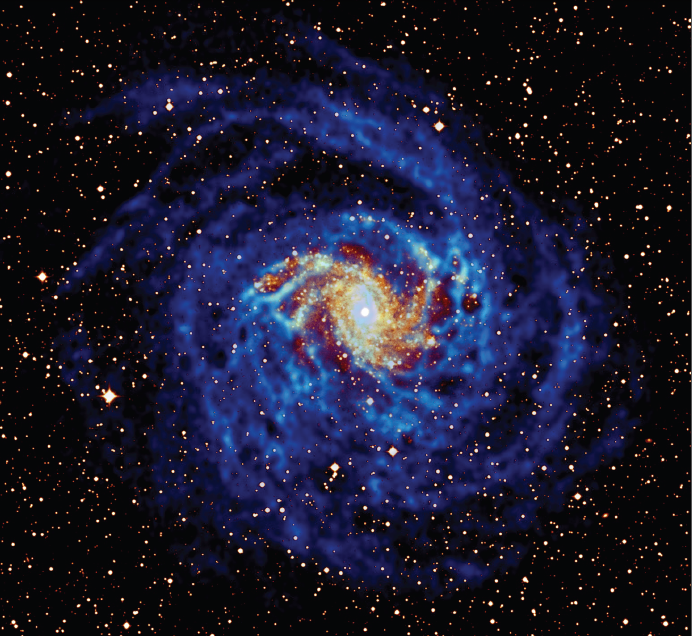ERC Advanced Grant for astronomer Thijs van der Hulst
Thijs van der Hulst, professor of extragalactic radio astronomy at the Kapteyn Astronomical Institute of the University of Groningen, has been awarded a prestigious Advanced Investigator Grant by the European Research Council (ERC). The ERC Advanced Grant programme supports excellent established researchers with pioneering research projects. Van der Hulst has won a grant of approximately EUR 2.5 million for the five-year project ‘The HI Story of Galaxy Evolution in the Nearby Universe’.
Neutral hydrogen signals
The research project aims at unraveling the role neutral hydrogen plays in the evolution of galaxies by using the new wide field radio camera APERTIF on the Westerbork radio telescope. APERTIF is able to scan large areas of the Northern Sky for the signals of neutral hydrogen from thousands of galaxies in the nearby Universe.
APERTIF widens radio window for galaxy research
The revolutionary radio camera APERTIF widens the existing fi eld-of-view of the telescope by more than a factor 30. This enables collecting data for several thousands of galaxies instead of just a few hundred. APERTIF was developed by the Netherlands Institute for Radio Astronomy (ASTRON). Astronomers at the Kapteyn Institute are working closely with ASTRON to prepare the science programme for APERTIF. They build upon a long tradition of using radio telescopes to image the neutral hydrogen in galaxies.

ERC granting programme
The ERC Ideas programme offers financial support for innovative research. ERC Advanced Grants are open to excellent established researchers who have a recent research track-record which identifies them as leaders in their respective field of research. Besides the Advanced Grant, the ERC offers the Starting Investigator Grant and the Synergy Grant that has been introduced recently. In response to the 2011 call for the ERC Advanced Grant 2,284 proposals were submitted; a 13% increase in demand compared to the last Advanced Grant call of 2009.
More information:
Contact: Prof. J.M. van der Hulst
More news
-
06 January 2026
Getting to grips with the workhorses of our body
